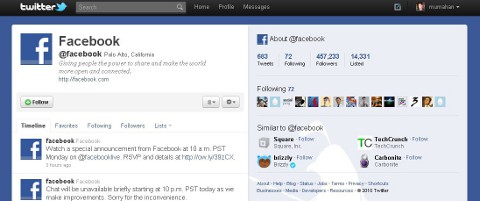
I recently visited with a friend who is pretty aware of technology, but he still feels a bit awkward when it comes to blogs. He spoke of how subscribing, commenting, and joining into a discussion can feel a bit daunting if you are not sure how it all works. When I looked at it from his perspective, I realized how right he was. Perhaps bloggers don’t look at things from a new user perspective as much as we should. We should try harder to be more welcoming of the uninitiated, and that is what I hope to do here.
I am writing this for you, whether you are completely new to blogs, or an experienced blog owner who may have forgotten how lost you felt when you were just figuring this blogging stuff out for the first time. I also want to inspire you with some significant benefits of participating in blogs.
My friend mentioned how some people have their little picture by their name, and wondered how that happens. He really snapped me back to the reality that this whole blogging thing can be a little confusing to “ordinary” people (as opposed to “blog people”, of course). I intend to help clarify some issues of how to participate in blogs, how to find blogs worth discussing, and how it can benefit you even if you are one of those “ordinary” people.
I will begin with the very basics, so if you already know this, I urge you to be reminded that many others do not. If you have your own blog, it is easy to forget all that stuff you have learned about blogs and how they work. Here is a question I have heard more than a couple times:
How Do I Get My Picture to Show Up on Blogs?
I suppose I will begin with that little picture beside peoples’ name. No, it does not mean they are a member of some elite blogging fraternity. Having your own unique picture show up on blogs when you comment is as simple as creating an avatar. More specifically, a “Gravitar” which is a globally recognized avatar image that you can use in more places than a Visa card (that’s a lot).
There is a benefit to the image, too! A graphic along with your comments can be strongly identifying as people read through comments, and especially at blogs where you plan to return often. People will identify with your avatar faster than by reading the names as they read through comments. If you are interesting to them, they will be looking for your image.
They Want My Email?!
I am probably the most reserved person you ever came across when it comes to giving out my email addresses. In fact, I am borderline obsessive about this. I love having a clean inbox, and I hate when people clutter it with junk. This is especially true with some of my prized email accounts like my very special one that is only seven characters, including dots and the “@” (example: x@xx.xx). Yes, I hate giving out email addresses on websites!
Gravitars are based on the email address or addresses which you specify at Gravitar.com. Most blogs and forums use Gravitars to pull in your avatar, which is why they ask you to enter your email address. Of course, email addresses are also one way that blog administrators can quickly blacklist people who spam their community with useless or offensive comments. This is a good thing … a very good thing.
If it makes you feel any more comfortable about the matter of email, I have a specific email address which I use for commenting on blogs, and I receive no spam at that address at all. I really do feel totally safe on this matter. Additionally, many blogs allow you to use your image from other services like Facebook, Twitter, OpenID, Yahoo! or others, but don’t get flustered. I am getting to that part, and it will be easy … have a little faith.
What About Commenting Systems Like Disqus and Intense Debate
When commenting systems like Disqus and Intense Debate came along, I was really reluctant at first. I liked the good old standard system of entering my name, email address, and website address, adding my comment, and clicking “Submit”. That made sense to me, and it was so simple.
Now let’s have some “whisper time” while I tell you a little secret …
[Mark leans in close and screams into ear:] Disqus and Intense Debate Do Not Require a Signup!
This is the one thing that made me so frustrated when I saw these commenting systems gaining popularity. It appeared that I needed to sign up for more stuff. I already had my Gravitar, and I just wanted to add my two cents to a blog. Why did they make it so darn confusing all of the sudden?!
I am really glad that my buddy brought this to my attention, because I felt the same way. Somehow I had this misconception that because the blog commenting systems allowed me to log in, that I needed to log into something. This is not the case at all. You do not need to set up a new account to use either of these systems. If you want to make a comment on a blog using any of the popular blog commenting systems, you may comment as a “Guest”. You can still add your email, use your Gravitar, and add the link to your website. Let us end that confusion right now, and put a period after it.
The benefits of these systems are numerous, but optional. They allow you to click a button to use your Facebook, Twitter, OpenID, Yahoo! or other profile information, but it goes further. They also let you easily share the blog articles you comment on, along with your comments, across social networks. Sharing is still optional, even if you log in using these services, but there can be great cases for alerting friends on what you are discussing on a blog article and getting their opinions, too.
There is still more benefit! These services also aggregate comments that you make on different blogs into one place where you can go and see replies to your comments, and thus making it easier to respond to them, ask or answer questions, build rapport, build community, and etcetera. They also include profiles that you can use to follow other users’ comments and join in their communities of interest, too. Of course, I cannot give you my login to see all of the goodies, but here is my public Disqus profile which shows comments I make on other blogs which use Disqus.
In my opinion, these are some really useful tools, and more bloggers would probably adopt their use if they, and their readers understood the full benefit and usage. That means ending the confusion surrounding them, but I am trying! I use Disqus commenting system here on this blog. Try it out by adding your comment. It really is as easy as I said.
How to Find Good Blogs
Can you believe how many blogs there are out there on the Internet? There must be a squillion people blogging about everything from A to Z. Finding the good ones which fit your interests can be a lot easier with the right tools. Try a Google blog search (http://blogsearch.google.com/) for things which interest you. Try a Twitter search, and monitor it regularly! Even if you do not have a Twitter account, you can still find a lot of value in the search features. Get creative and try it out at search.twitter.com and be sure to try the advanced search. There are also a lot of blog aggregation services like Blog Catalog and Technorati, along with many which are targeted to specific interests or industries.
A great place to find useful blogs is by paying attention to what people with your same interests or in your career field read. You can often find that out by watching their Twitter, Facebook, Digg, or better yet, go look to see which websites are linking to their website by searching their web address on Open Site Explorer. If they leave comments on blogs, you can bet the links will show up. Just think of all you can do with that information.
Once you find some blogs you like, subscribe to them! You will really not get much benefit from a blog if you make it easier to overlook them. I use Google Reader to subscribe to many RSS feeds, but I subscribe to my favorite blogs by email and by RSS just to be sure I keep in touch with them. If you want to know more about tools to help with blogs, I strongly suggest reading “6 Essential Blogging Tools for Bloggers and Non-Bloggers“.
SEO and Blog Commenting
Why should you participate in blog discussions? Have you ever heard of WiiFM? It means “What’s in it for me?” You want to know the answer of what’s in it for you, right? After all, you are still human, even if you are one of those “blog people” I mentioned.
The benefits of blog commenting are not just as they seem. Certainly there is a strong benefit from a SEO (search engine optimization) standpoint, but let’s not get irritating with that! I will touch on this topic and then move on. If you take this as a suggestion to go out with a hope of leaving meaningless comments on a bunch of blogs to become popular, you will not be popular in the way you like. In fact, I consider it a horrible SEO strategy (but very common) to try and use blog comments to build up your incoming links. Sure, blog comment links can be quite valuable, but without being courteous and useful, you are just peeing down your leg. You will find a much more profound benefit by being useful, and I will explain that.
Think of it this way, if you try to use blog commenting as a tool for SEO, imagine how much greater value you will find if your comments make people like you and want to know you. If they come and read your blog, they may like what you have to say there, too. This is precisely the reason my blog here at aWebGuy.com is listed with a link from every page of a whole lot of blogs in their “Blogroll”. They are also more likely to reference you with a link in one or more of their articles. That seems a lot more valuable to me than the SEO value of links from a few comments I made. Wouldn’t you agree?
When you comment on a blog and include your URL (website address), it will appear as a link on most blogs. Those links are what search engines use to discover and judge the value of websites. More links means more value, but of course it is not that easy. More of the right links can add huge value. The SEO tactic of seeking blogs with great search engine ranking just to leave worthless comments misses the target in a big way. Just imagine if you said something funny, interesting, useful, or otherwise put your unique spin on a topic. People are more likely to like and respect you, and there is definitely a better chance that they will want to know more about you. I have gained a lot of readers because they saw my comments on another blog and liked my take on things.
We discovered that golfers can benefit from Pilates. I suggested that she read more blogs about golfing and get to know the community. She also said that equestrian is another area she sees a lot of business. I suggested getting to know the equestrian community in her area. Just reading about these topics, alone, can help her have a better conversation when these people contact her, but also give her a lot better understanding of their needs when it is time to write about these things on her blog. If she choses to comment on topics in these fields with something useful, she could become a lot more valuable to the community. It adds up over time, in a big way. Now, imagine how nice it will be for her if her website lands in the blogroll of a handful of related blogs because they like her input.
Good Blog Commenting
What is a good blog comment? Sometimes it is perfectly fine to add a brief comment just to thank the author, but it is far better to say what you really think. “Thanks, great blog post.” is about generic enough that you may just earn the sugar-free cookie award for being boring. Step it up a notch and ask a question, answer a question, or do something more than look like you are just trying to get a link on their blog. Trust me on this … bloggers are pretty skeptical about those “Thanks, great blog post.” people. There are thousands of people in India (no offense to my Indian friends) who are paid about four dollars a year to sit and add “Thanks, great blog post.” comments to blogs.
You can do better, and it really does make a difference! Doing better usually means that you should slow down and participate. The scan-and-click nature of the Internet leads to a lot of waste. If you actually slow down and give your attention to the blogs you like, and the blogs where you find value, you can create more value for yourself.
I should note that bloggers love comments, and it validates their hard work. It makes sense for it to be really easy and inviting for users to add their input. I would probably have a lot more comments here, but I am just crazy enough to put my toll free telephone number all over my blog. I love having brainstorming calls from friends and strangers. It keeps me sharp. My phone rings … a lot! Since most bloggers probably do not want my telephone bill, a fantastic alternative is comments.
Stop and Read the Comments!
Once you find blogs that you like, be sure to read the comments. Those comments are written by other people who may have similar interests and you may find that you really like them. You may find a connection to your next great customer, friend, supplier, or job. If you do not slow down and pay attention, you will never know. If you don’t leave your comments, they won’t either!
Strongly Suggested Reading:
6 Essential Blogging Tools for Bloggers and Non-Bloggers
10 Really Good Reasons to Blog
5 Common Reasons Blogs Fail
Photo credit to daveandlolo via Flickr
Podcast: Play in new window | Download





